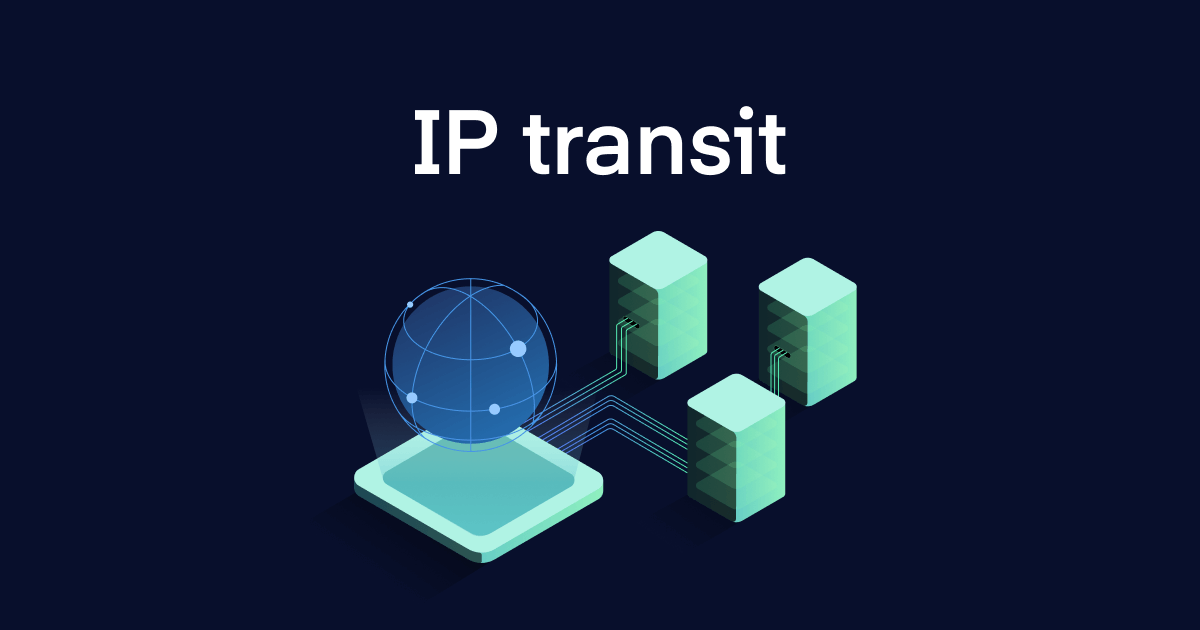In the constantly evolving landscape of internet connectivity, both businesses both large and small depend on IP transit to ensure uninterrupted access to the digital world. From cloud-based services to powering e-commerce platforms, IP transit acts as the core of modern communication networks. We will explore the basic concepts of IP transport along with the functions and roles of IP providers.

IP transit, also referred to as internet transit is the service of allowing network traffic to traverse or “transit” the network, thus allowing users to connect to the wider internet. IP transit providers are organizations that own the infrastructure needed to transmit data packets across networks. These providers play a crucial part in ensuring stable and efficient internet connectivity for both businesses and consumers alike.
When it comes to IP transit services, businesses have a range of options to choose from. Some providers offer basic transit options, offering access to the internet without additional features or customization. Some providers offer more sophisticated services, such as managed IP transit which includes extra support, monitoring and security features. The type of service you choose depends on the specific requirements and requirements of the company.
Pricing is among the most important factors to consider when selecting a service provider. IP transit pricing can vary dramatically based on various aspects like bandwidth requirements geographical location, bandwidth requirements, and service level agreements. It is essential for businesses to be aware of the various pricing models and cost structure offered by providers in order to make informed decisions and get the most value from their investment.
Businesses should consider not only the price, but also the reliability and performance offered by the IP transit provider. Carrier grade networks that have backbone connectivity between 100G and 400G provide the security as well as the scalability, reliability and scalability required to provide mission-critical services and applications. End-to-end automation improves the efficiency of operations and creates an unbeatable user experience.
IP-Access offers a customizable and flexible option for companies who are seeking to streamline their networking connectivity. This option of connectivity is perfect for companies with older installations or special requirements. Businesses can modify their connectivity using features such as IPv4/31 or IPv6/127. default transfer networks.
When it comes to internet access, IP Access offers the essential DDoS protection against large-scale attacks, providing an added layer of security for companies and their networks. This helps protect against interruptions in service and the potential loss of revenues due to cyber-related threats.
Inter.link Portal provides a convenient cost-effective and efficient method to gain access to IP services for all businesses. Businesses can implement IP Transit in just minutes using a few clicks. They choose their preferred location, bandwidth requirements as well as the speed of port connections and contract duration. This process is simple and allows companies to focus their resources and time to focus on their core activities.
IP transit is an essential element of the modern internet which allows companies to connect and communicate with individuals from around the world. By understanding the fundamentals of IP transit, including the functions of IP transit providers, the range of services they offer and the best way to manage the costs and pricing, businesses can make educated decisions and be sure that they have the connections they need to prosper in the current digital landscape. IP Transit is at the heart of modern communications networks, whether for accessing cloud-based services, serving as the powerhouse behind platforms like ecommerce or connecting distant offices.